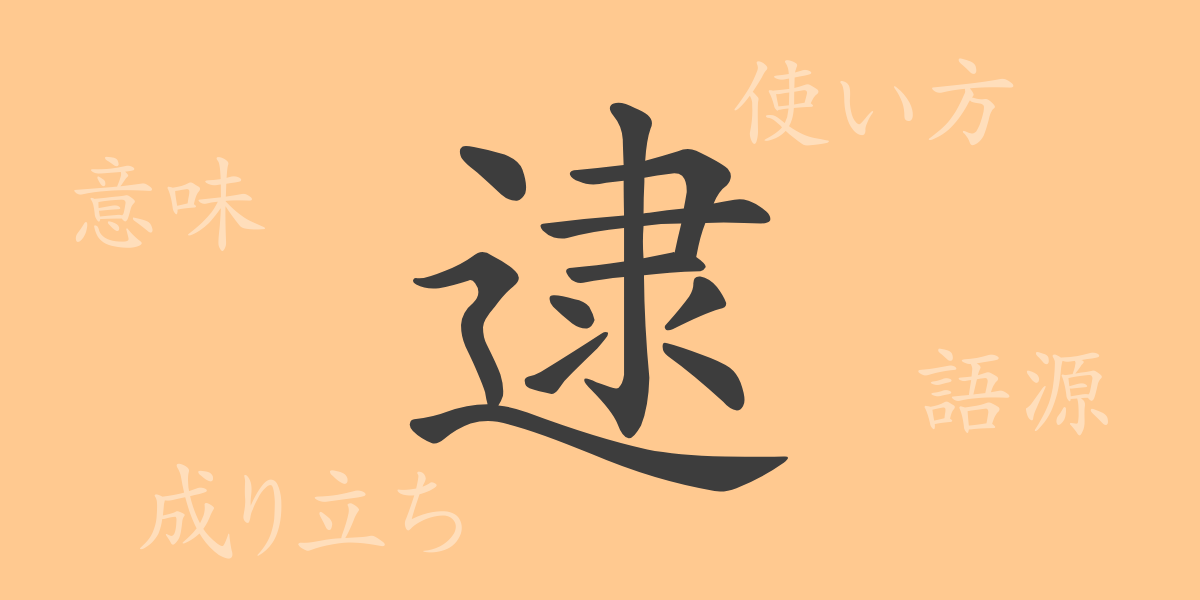The Japanese language is enriched by its complex and diverse kanji characters, each with its own unique history and meaning. ‘逮’ (たい) (tai) is one such commonly used kanji that appears in everyday life and specific contexts like legal terminology. This article delves into the origins, meanings, applications, and phrases related to ‘逮’, exploring the full scope of this kanji.
Origin of ‘逮’ (たい) (tai)
The kanji ‘逮’ originated in ancient China, combining the radical ‘辵’ (ちょう) (cho), which signifies walking, with ‘隶’ (れい) (rei), meaning to follow. This combination initially depicted the act of chasing and capturing. Over time, the meaning of capturing evolved to have metaphorical uses, and today, it encompasses a broader range of interpretations.
Meaning and Usage of ‘逮’ (たい) (tai)
‘逮’ primarily means “to catch up” or “to capture.” It is commonly used in the legal term ‘逮捕’ (たいほ) (taiho), meaning “arrest,” which reflects its core meanings. Metaphorically, it can also express reaching a situation, as in “to come to a point where something happens.”
Readings, Stroke Count, and Radical of ‘逮’ (たい) (tai)
‘逮’ is one of the Japanese kanji with unique readings:
- Readings: The on’yomi (Sino-Japanese reading) is ‘タイ’ (tai), and it generally does not have a kun’yomi (native Japanese reading).
- Stroke Count: ‘逮’ is composed of 9 strokes.
- Radical: The radical for ‘逮’ is ‘辵’ (ちょう) (cho), related to walking.
Phrases, Idioms, and Proverbs Using ‘逮’ (たい) (tai) and Their Meanings
While not abundant, there are a few idioms and phrases that include ‘逮’:
- 逮捕 (たいほ) (taiho): To arrest a criminal and detain them.
- 未逮 (みたい) (mitai): Not yet captured or arrested.
- 逮夜 (たいや) (taiya): The deepening of the night, or late at night.
These terms reflect the meanings of ‘逮’ related to catching or capturing.
Conclusion on ‘逮’ (たい) (tai)
The kanji ‘逮’, with its distinctive meanings and applications, is frequently used in specific contexts, especially in legal terms. Through this article, we hope you have gained a deeper understanding of ‘逮’s history and meanings, enriching your comprehension of Japanese. Each commonly used kanji in Japanese, including ‘逮’, narrates a rich story, showcasing the allure of the Japanese language.

























